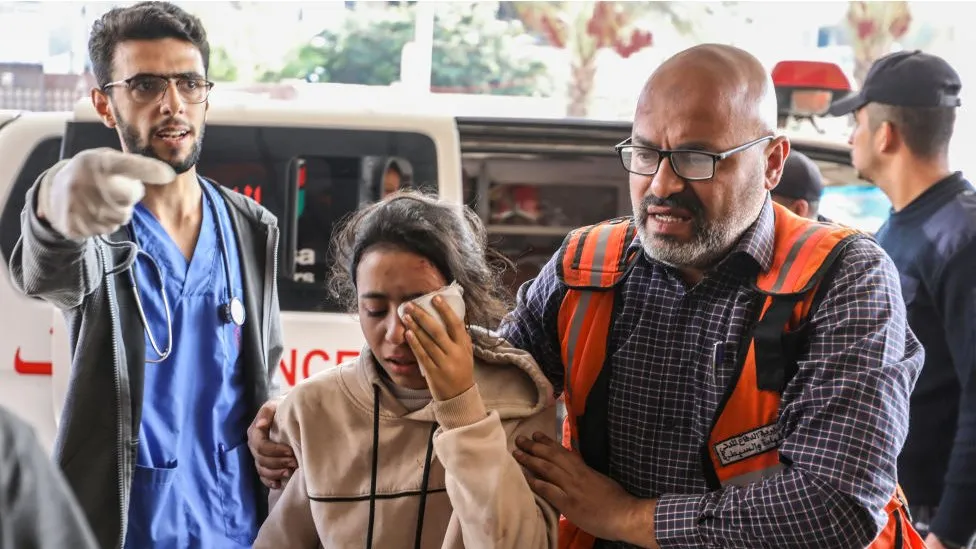ISRAEL has carried out intense air strikes on Khan Younis in southern Gaza, with residents describing it as the heaviest bombing of the war.
People in eastern areas of the city have been told by the Israeli military to evacuate further to the south.
Israel believes some Hamas leaders are in the city, where many civilians are sheltering after fleeing the north.
Gaza’s Hamas-run health ministry says at least 240 people have been killed in the latest wave of Israeli attacks.
On Friday, the Israel Defense Forces (IDF) resumed its offensive against Hamas in Gaza, launched in response to the 7 October attacks in Israel which killed around 1,200 people.
The health ministry says the number of people killed in Gaza has now exceeded 16,200 people.
Israel’s bombardment of Gaza resumed after a temporary ceasefire ended on Friday. The IDF said it had hit more than 400 Hamas “terror targets” on the first day of the renewed operation.
Rockets have also been regularly fired at Israel from Gaza since fighting resumed, including a barrage aimed at Tel Aviv and the surrounding area of central Israel on Saturday evening.
Following this attack, Israel’s ambulance service said it treated a 22-year-old man for “minor shrapnel injuries” to the head in Holon – a city just south of Tel Aviv.
Khan Younis and the city of Rafah, on the border with Egypt, were some of the places hit with heavy air strikes, with the next phase of the offensive likely to focus on southern Gaza.
Hundreds of thousands of Palestinians have sought shelter in the area, after being told to flee the north of the territory, which was Israel’s main target in the early stages of the war.
The IDF’s Arabic-language spokesman posted maps on social media indicating which areas civilians should leave, directing people in areas east of Khan Younis to evacuate further south to shelters in Rafah, an indication that a ground offensive could be imminent.
Hospitals, operating with limited resources after weeks of fighting, were overwhelmed with casualties, and at the Nasser Hospital in Khan Younis, some patients were treated on the floor.
“A night of horror,” Samira, a mother of four, told the Reuters news agency. “It was one of the worst nights we spent in Khan Younis in the past six weeks since we arrived here… We are so afraid they will enter Khan Younis.”
Unicef spokesman James Elder, who was in Khan Younis on Saturday, told the BBC that hospitals were already “saturated” with casualties before the strikes resumed.
“There is literally blood in the corridors, there are mothers yet again holding babies who look like they’ve been killed”, he said.
Saleh al-Arouri, deputy head of Hamas’s political bureau, told Al Jazeera on Saturday that “there are no negotiations now” and there would be no more prisoners exchanged with Israel until the war is over.







